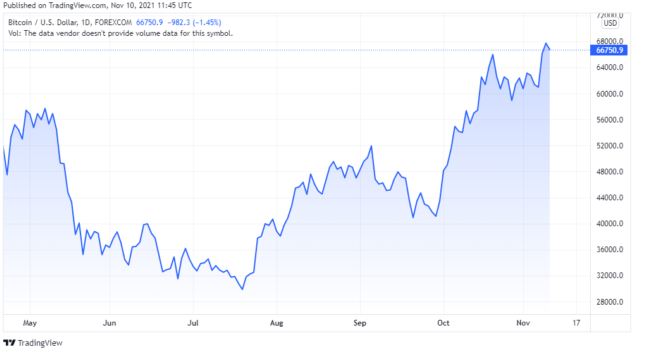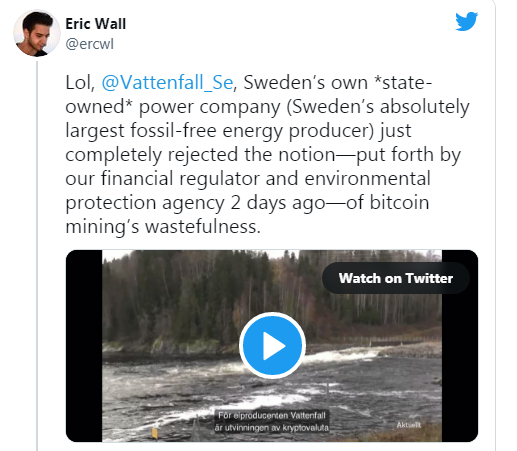In Sweden, financial and environmental regulators want to ban PoW mining. Unfortunately, they forgot to add Vattenfall to the email. And Sweden’s biggest green energy power company categorically rejected their claims on national public television. Ouch. This is a real-life example of the game theory that protects Bitcoin. And more evidence that proves that Bitcoin incentivizes green energy infrastructure.
But, let’s start at the beginning.
Why Do Swedish Regulators Want A PoW Mining Ban?
The proposal signed by both the Financial Supervisory Authority and the Environmental Protection Agency echoes every FUD imaginable. Everything that detractors have said about Bitcoin and cryptocurrencies in general makes its way into this short document. They also propose to ban PoW mining every other paragraph. Here’s an example:
“The consumer risks are significant, and crypto-assets are commonly used for criminal purposes such as money laundering, terrorist financing and ransomware payments. Crypto-assets also have a significant negative impact on the climate as mining leads to both large emissions of greenhouse gases and threatens the climate transition that needs to happen urgently. This is alarming, and crypto-assets therefore need to be regulated.”
Ok, if PoW mining “leads to both large emissions of greenhouse gases and threatens the climate,” why are they proposing a ban in the country that produces the most green energy? Also, an incredibly high percentage of “money laundering, terrorist financing and ransomware payments” is done with fiat money within the fiat system. Shall we ban that too?
“Due to the increased focus on CO2 emissions and in light of China’s recent Bitcoin prohibition, a greater number of crypto-producers are exploring the possibility of using renewable energy for mining. Crypto-producers are therefore turning their attention to the Nordic region, where prices are low, taxes for mining-related activities are favourable, and there is good access to renewable energy.”
Shouldn’t they be applauding the fact that PoW miners made the effort to go to a green-energy-focused country to perform their activities?

BTC price chart for 11/10/2021 on Forex | Source: BTC/USD on TradingView.com
What Do They Propose And What Do They Believe?
The document continues:
“The EU to consider an EU-level ban on the energy-intensive mining method proof of work. There are other methods for mining crypto-assets, that could also be used for Bitcoin and Ethereum, that are estimated to reduce energy consumption by 99.95% with maintained functionality.”
No, there aren’t. There’s no alternative to PoW mining and everyone who says otherwise is fooling himself. Plus, there’s zero energy waste in a PoW system. The energy it uses secures the system to an unimaginable degree. It takes care of the issuance of the “crypto-asset.” And, most importantly, it solves the Byzantine Generals Problem. By doing that, it allows the system to work in a decentralized way without relying on a trusted central party.
And that’s not even the best thing PoW mining does.
What Does The State-Owned Power Company Think About The Document?
This is the national public television broadcaster’s video. SVT talks with Henrik Juhlin, the Head of Physical Power Management for Vattenfall.

According to Swedish national Erick Wall, Chief Investment Officer at Arcane Assets, “they talked about how crypto mining was an excellent ”buffer” in energy production that is highly useful for controllable load management and a way to monetize excess energy which would otherwise go to waste.” And also, “Their thesis is that if countries with great access and infrastructure to harvest fossil-free fuel were to ban crypto mining, crypto mining will happen in countries and from sources with much worse CO2 emissions. So banning it here would be shooting nature in the foot.”
Why would Swedish regulators want to shoot nature in the foot? That’s not good for anyone. In fact, that’s the exact opposite of what they say they want to accomplish with the PoW mining ban.
Disclaimer : The above empty space does not represent the position of this platform. If the content of the article is not logical or has irregularities, please submit feedback and we will delete or correct it, thank you!